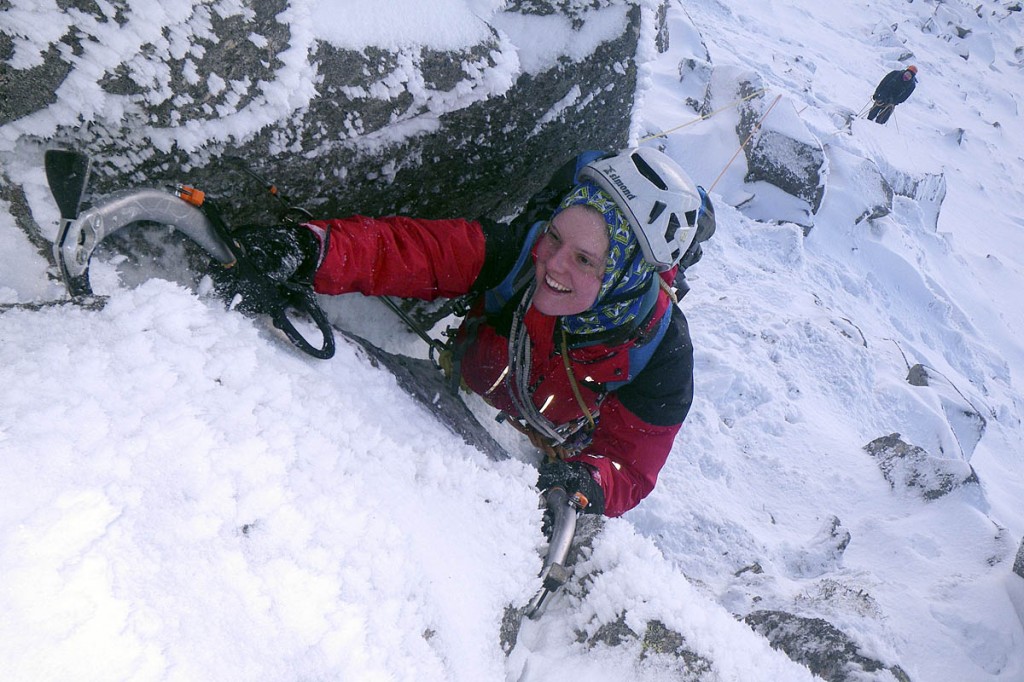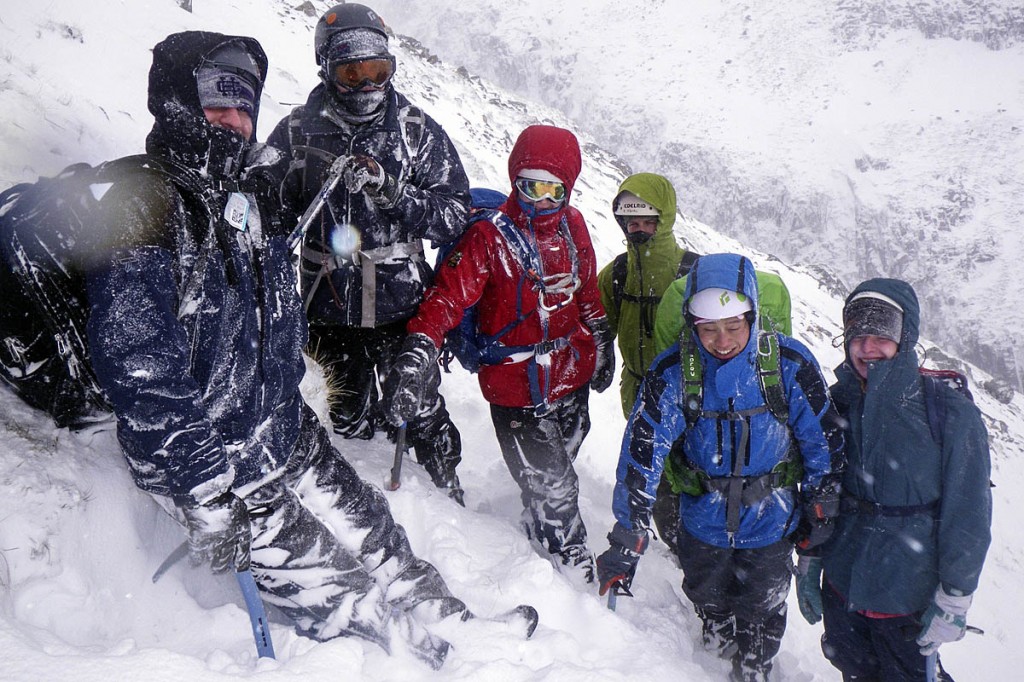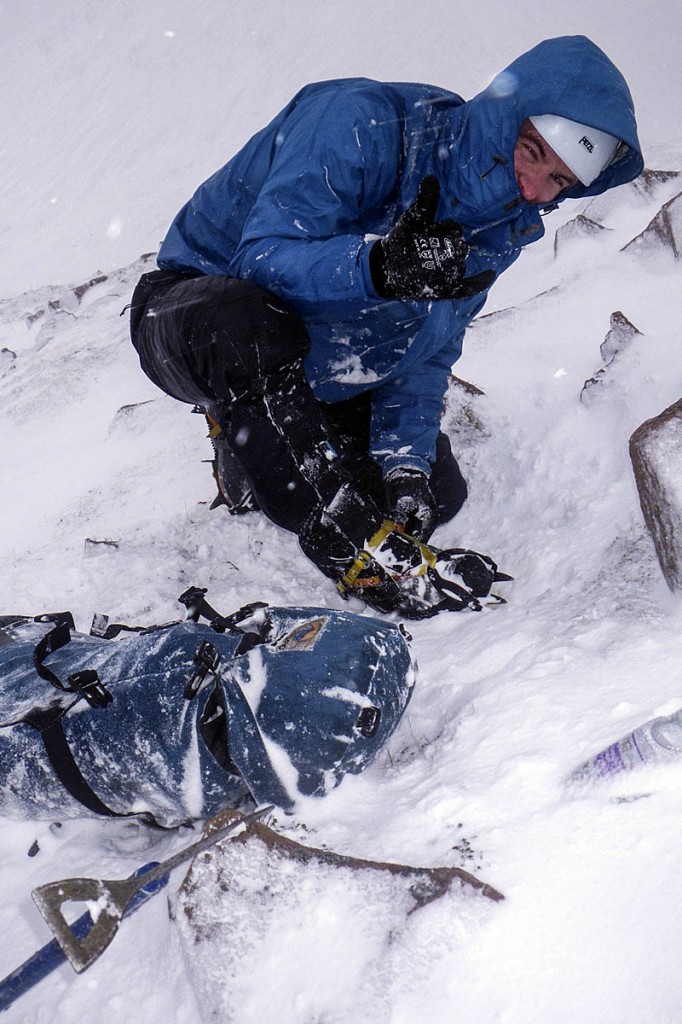Scores of high-risk hillgoers have received practical winter mountain training to increase their safety.
Students from Scotland’s universities have taken part in the winter skills courses in a scheme run jointly by the Mountaineering Council of Scotland and St John Scotland.
The members of the mountaineering clubs, particularly freshers, are viewed as being more at risk of getting into difficulties on Scotland’s winter mountains.
Up to the end of February, 60 students had benefited from training on the hill and 130 from evening lectures. The MCofS said recent mountain incidents had prompted to ill-thought-out calls to restrict access to the mountains in winter but the scheme was taking a more positive and practical approach.
The mountain safety instructor scheme has been run by Nick Carter, who holds the Mountaineering Instructor Certificate, the highest qualification in the British mountaineering instructor scheme. Through the winter he has been working with university mountaineering clubs, particularly freshers, who join clubs in the first weeks of arriving at university and who may go into the hills to face challenging weather conditions without appropriate training.
Students have learnt a range of essential winter mountaineering skills, including navigation, use of ice-axe and crampons, moving on steep ground, avalanche danger and choosing a route depending on conditions, and use of emergency shelters.
One of the participants from St Andrews University said: “The weather on the day of our excursion was absolutely horrible, which allowed us to learn and practise first-hand the skills needed to cope with such conditions, such as navigating in whiteout conditions.”
An Edinburgh University Mountaineering Club member said afterwards: “I took winter more seriously and saw it in a different perspective, realising my previous over-confidence.”
St John Scotland, which funds the scheme, is a leading care charity and the biggest single supporter of the voluntary mountain rescue movement in Scotland.
Nick Carter said: “This is a great idea from St John Scotland and something which is very much needed.
“In many university clubs even the senior members may not have the experience or perhaps the confidence to instruct beginners. I firmly believe that it’s important to catch people young and prepare them for a lifetime of safely enjoying the mountains.”
Major General Mark Strudwick, Prior of St John Scotland, said: “St John Scotland’s purpose is to both save and enhance life; this initiative achieves both – it allows students to more safely venture into the hills, thereby improving their fitness, leadership and, importantly, their self-confidence, while it equips them to deal with emergencies if such circumstances arise.
“We are proud to be collaborating with the Mountaineering Council of Scotland in this way. Nick Carter has proved to be not only an outstanding instructor, but also a fantastic role model for the student community.”
The scheme was devised in 2015 for a group of mountaineers judged to be higher risk in an activity that already has an element of risk.
Heather Morning the mountain safety adviser with the MCofS, said: “This is a fantastic opportunity for university club members to obtain qualified instruction during their winter meets, at no cost to the club or students, with the aim of enhancing their awareness of the skills and knowledge which will help them become more self-reliant.”
Another St Andrews student said: “Nick did a great job of explaining, demonstrating, and teaching numerous safety and climbing skills to us.
“He gave us a solid understanding of checking forecasts so that good decisions can be made before going out for a climb and identifying hazards while out. He taught us to determine the safest route choice in a variety of situations, as well as useful navigation skills.
“I definitely feel that all club members will be safer in the mountains now. We are certainly better prepared to avoid and respond to dangerous situations in the mountains because of Nick’s instruction.”


